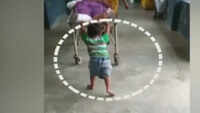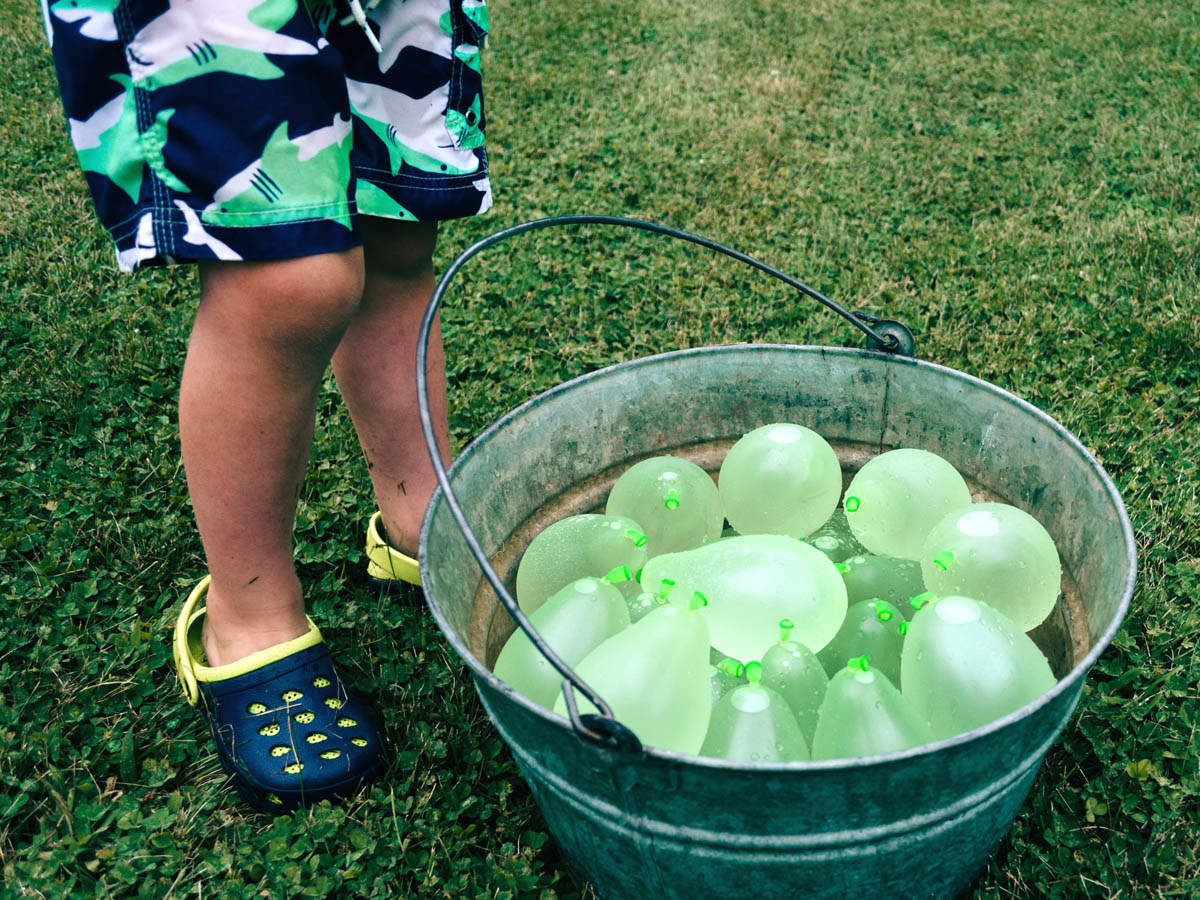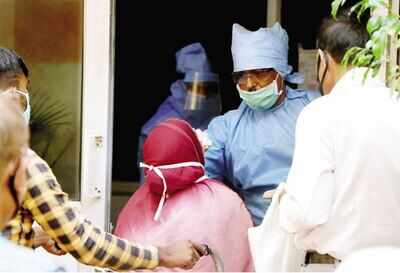
LUCKNOW: In a bid to deter people from hiding their Covid-19 infection, the Uttar Pradesh government on Monday decided to allow home isolation for asymptomatic patients in the state. According to the health department's estimates, about 80% patients in UP are asymptomatic.
Stressing that the state has no dearth of Covid beds, chief minister Yogi Aditynath said that the infection would spread further if people continue to hide it.
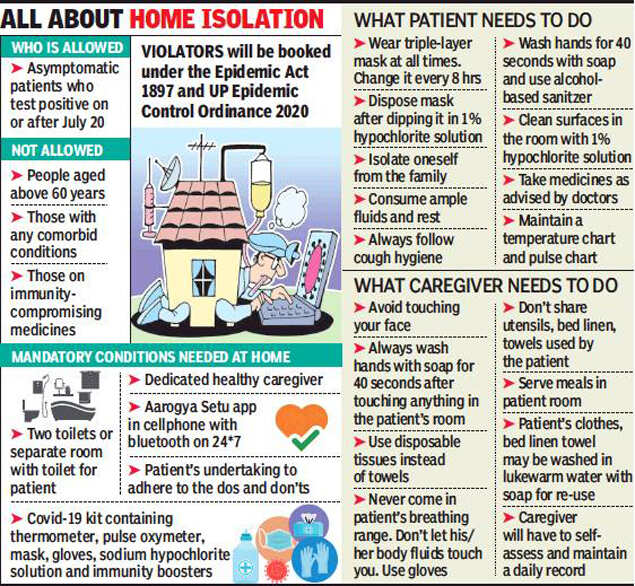
"Therefore, the state government has decided to allow home isolation on certain terms and conditions which will be mandatory for the patients and their family members," he said.
As per the guidelines for home isolation, drafted by a committee led by medical education minister Suresh Khanna, the order will be effective for those testing positive on or after July 20.
The guideline said that anyone below 60 is eligible for the facility upon fulfillment of the criteria defined. Besides elderly, those with a comorbid condition like diabetes, heart diseases, renal ailments etc, anyone with any kind of immune compromised condition like HIV or on drugs due to conditions like organ transplant or cancer will not be eligible.
The patients will have to give in writing that they will adhere to the prescribed dos and don'ts.
The violators will be booked under the Epidemic Act 1897 and UP Epidemic Control Ordinance 2020.
Issued by additional chief secretary, health and family welfare, Amit Mohan Prasad, the guidelines said that there should be availability of ample space (at least two toilets or a separate room with separate toilet facility) to isolate a patient and presence of a care-giver to avail the facility.
The patients will have to download the Aarogya Setu app and keep the bluetooth of their cellphones on all the time. Besides, they will have to update their medical condition every day on the //dgmhupcovid19.in/COVID19.apk app developed by the state health department to monitor Covid-19 patients.
All such patients will have to procure a covid kit comprising pulse oxy-meter, thermometer, mask, gloves, sodium hypochlorite solution and immunity boosters. The guidelines contained a detailed to-do list for both patient and caregiver besides the undertaking.
“The field staff will have to monitor the health of those under home isolation through the app and also through the field teams. They will have to keep a record of temperature, pulse-rate and oxygen level of the patient. They will also sensitize the care-giver of the patient. Field officials will also arrange for testing of the contacts,” the GO regarding the guidelines said.
“Home isolation will end in 10 days if there are no symptoms and no fever for three cosecutive days. Thereafter, the patient will be advised to isolate at home and self-monitor their health for further seven days. There is no need for testing after the home isolation period is over,” the guidelines said. Besides UP, many states including New Delhi, Bihar, Rajasthan, Karnataka, Madhya Pradesh have already implemented home isolation after the Union ministry of health and family welfare advocated it for selected persons and issued detailed guidelines on July 2 but the decision to implement them was left to the state. Many states have localized the guidelines. In Punjab for instance, home isolation is not allowed for those having small houses while in Rajasthan, those floating home isolation norms are put under institutional quarantine.
Secretary to CM, Alok Kumar said that while the GOI guideline served as the base for drafting the protocol for UP too, there is one big difference. “Unlike GOI guideline, which allows home isolation for both asymptomatic and those with mild symptoms, UP is allowing only asymptomatic patients to begin with,” he said.
Experts said that the decision to allow home isolation is significant and timely. “It provides an opportunity for families to take responsibility, encourages self-reporting and reduces unnecessary burden on the health system. Simultaneous emphasis within institutions on improving quality of care including respectful care will be critical in our battle against COVID,” said Dr Vishwajeet Kumar, epidemiologist and public health specialist.
Officials in different states hinted towards the challenge in the system too. “In many places, we found that those under home isolation had moved out of their homes and paid a visit to an ATM or a grocery store. So steps must be taken to ensure that people adhere to the isolation,” said an officer in Rajasthan. Another officer in New Delhi revealed that people used ‘influence to get themselves categorized as mild or pre-symptomatic to avoid hospital stay’
Stressing that the state has no dearth of Covid beds, chief minister Yogi Aditynath said that the infection would spread further if people continue to hide it.

"Therefore, the state government has decided to allow home isolation on certain terms and conditions which will be mandatory for the patients and their family members," he said.
As per the guidelines for home isolation, drafted by a committee led by medical education minister Suresh Khanna, the order will be effective for those testing positive on or after July 20.
The guideline said that anyone below 60 is eligible for the facility upon fulfillment of the criteria defined. Besides elderly, those with a comorbid condition like diabetes, heart diseases, renal ailments etc, anyone with any kind of immune compromised condition like HIV or on drugs due to conditions like organ transplant or cancer will not be eligible.
The patients will have to give in writing that they will adhere to the prescribed dos and don'ts.
The violators will be booked under the Epidemic Act 1897 and UP Epidemic Control Ordinance 2020.
Issued by additional chief secretary, health and family welfare, Amit Mohan Prasad, the guidelines said that there should be availability of ample space (at least two toilets or a separate room with separate toilet facility) to isolate a patient and presence of a care-giver to avail the facility.
The patients will have to download the Aarogya Setu app and keep the bluetooth of their cellphones on all the time. Besides, they will have to update their medical condition every day on the //dgmhupcovid19.in/COVID19.apk app developed by the state health department to monitor Covid-19 patients.
All such patients will have to procure a covid kit comprising pulse oxy-meter, thermometer, mask, gloves, sodium hypochlorite solution and immunity boosters. The guidelines contained a detailed to-do list for both patient and caregiver besides the undertaking.
“The field staff will have to monitor the health of those under home isolation through the app and also through the field teams. They will have to keep a record of temperature, pulse-rate and oxygen level of the patient. They will also sensitize the care-giver of the patient. Field officials will also arrange for testing of the contacts,” the GO regarding the guidelines said.
“Home isolation will end in 10 days if there are no symptoms and no fever for three cosecutive days. Thereafter, the patient will be advised to isolate at home and self-monitor their health for further seven days. There is no need for testing after the home isolation period is over,” the guidelines said. Besides UP, many states including New Delhi, Bihar, Rajasthan, Karnataka, Madhya Pradesh have already implemented home isolation after the Union ministry of health and family welfare advocated it for selected persons and issued detailed guidelines on July 2 but the decision to implement them was left to the state. Many states have localized the guidelines. In Punjab for instance, home isolation is not allowed for those having small houses while in Rajasthan, those floating home isolation norms are put under institutional quarantine.
Secretary to CM, Alok Kumar said that while the GOI guideline served as the base for drafting the protocol for UP too, there is one big difference. “Unlike GOI guideline, which allows home isolation for both asymptomatic and those with mild symptoms, UP is allowing only asymptomatic patients to begin with,” he said.
Experts said that the decision to allow home isolation is significant and timely. “It provides an opportunity for families to take responsibility, encourages self-reporting and reduces unnecessary burden on the health system. Simultaneous emphasis within institutions on improving quality of care including respectful care will be critical in our battle against COVID,” said Dr Vishwajeet Kumar, epidemiologist and public health specialist.
Officials in different states hinted towards the challenge in the system too. “In many places, we found that those under home isolation had moved out of their homes and paid a visit to an ATM or a grocery store. So steps must be taken to ensure that people adhere to the isolation,” said an officer in Rajasthan. Another officer in New Delhi revealed that people used ‘influence to get themselves categorized as mild or pre-symptomatic to avoid hospital stay’

Coronavirus outbreak
Trending Topics
LATEST VIDEOS
City
 Shocking: Dalit man stripped, mercilessly beaten up in Karnataka
Shocking: Dalit man stripped, mercilessly beaten up in Karnataka  Sachin Pilot offered me Rs 35 crore to join BJP, sensational claim by Congress MLA
Sachin Pilot offered me Rs 35 crore to join BJP, sensational claim by Congress MLA 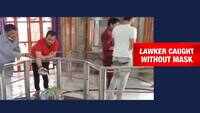 Uttar Pradesh: No masks, no social distancing, BJP MLA visits temple, offers prayers
Uttar Pradesh: No masks, no social distancing, BJP MLA visits temple, offers prayers 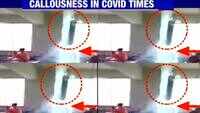 Shocker from UP: Water gushes through roof of Bareilly hospital's Covid-19 ward
Shocker from UP: Water gushes through roof of Bareilly hospital's Covid-19 ward
More from TOI
Navbharat Times
Featured Today in Travel
Quick Links
Kerala Coronavirus Helpline NumberHaryana Coronavirus Helpline NumberUP Coronavirus Helpline NumberBareilly NewsBhopal NewsCoronavirus in DelhiCoronavirus in HyderabadCoronavirus in IndiaCoronavirus symptomsCoronavirusRajasthan Coronavirus Helpline NumberAditya ThackerayShiv SenaFire in MumbaiAP Coronavirus Helpline NumberArvind KejriwalJammu Kashmir Coronavirus Helpline NumberSrinagar encounter
Get the app
